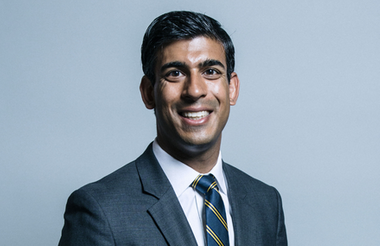Some 28 charity leaders across the sector have signed a joint letter to the prime minister in response to his recent announcements on changes to net zero policies.
The letter – signed by chief executives of ACEVO, Disability Rights UK, Race Equality Foundation and New Philanthropy Capital (NPC) – calls on Rishi Sunak to reverse his decision to delay policies to reduce carbon emissions.
“Whilst we are concerned about how current environmental policies are impacting people from different social groups, your proposed changes to them do not solve the problems that people, particularly those on low incomes, are facing now, and they are not in line with the priorities that they are telling us,” it reads.
Meanwhile, NPC has published five briefings looking at how the climate and nature crises affect disabled people, young people, older people and people from ethnic minority communities and what they expect charities and policymakers to do next.
Briefings from NPC
NPC’s research states the charity sector should do more to support those most impacted by the environmental crises.
Overall, all groups said that they would like charities to offer them more support “to advocate for action on the environmental crises”, as they feel that the government “isn’t doing enough” and that their voices are not heard.
They also said that charities should “extend their existing support to help them respond to the environmental crises, which many felt were already impacting their lives”.
The briefings’ findings are based on deliberation groups and surveys with more than 750 individuals from these social groups across the UK.
Support ethnic minorities to ‘have a voice’ in policy-making
People from ethnic minority communities said that “they don’t feel listened to by policymakers”, reporting “significant distrust of whether environmental policy recognises the challenges they face”.
The briefing says that charities should support them “to have a voice in policy-making and hold policymakers accountable for the social impacts of environmental policy”.
“Charities could also provide information that empowers individual environmental action and builds capacity in local areas to allow grassroots initiatives to thrive,” it adds.
Respondents suggested that charities could also establish ways for them to volunteer with individuals who need support responding to environmental impact, or “deliver activity that supports people from ethnic minority communities to access green space in a way that is safe”.
Help disabled people ‘advocate for their rights’
Disabled people told NPC that there are opportunities for policies to improve their life quality and benefit the environment, and that they need “accessible communication” on environmental crises from the government.
The briefing says that Disabled people's organisations (DPOs) and disability charities “should help Disabled people advocate for their rights in relation to environmental impacts and government policy responses”.
“DPOs and charities should ensure information on environmental crises and policy are accessible. DPOs and charities should help Disabled people to manage the impacts of the environmental crises on their health and wellbeing.”
Older people should be offered ‘an appropriate platform’
Older people said that the government has failed to take “sufficient action during their lifetimes” and that they are “frustrated”.
Charities should offer them “an appropriate platform to input into action on the climate and nature crises”, and support them with the impacts of the climate and nature crises such as ensuring continuity of services/transport in extreme weather.
“The principal areas where older people wanted charities to act were in providing education and advice on issues related to climate and nature and the impacts on their lives; campaigning and influencing government alongside and on behalf of older people; consulting with older people to both inform government policy and share tips with other older people about adapting to the impacts of the environmental crises.”
Charities should ‘green their operations’
When it comes to young people, charities should help them “be involved in the environmental action”, the briefing says.
“Young people want charities to green their operations as a bare minimum. But they also want charities to teach them and others about the issues; help them access green jobs and training; support them with their mental health; and provide opportunities for time outside.”
It adds that charities could support them “through campaigning and advocacy, with ideas including leading young people to get involved via meetings with politicians, protests and boycotts; and campaigning alongside them for policy change”.
The five briefings are part of the Everyone’s Environment programme, a collaboration of more than 50 charities and funders to accelerate action on the social impacts of the environmental crises.
Related articles












